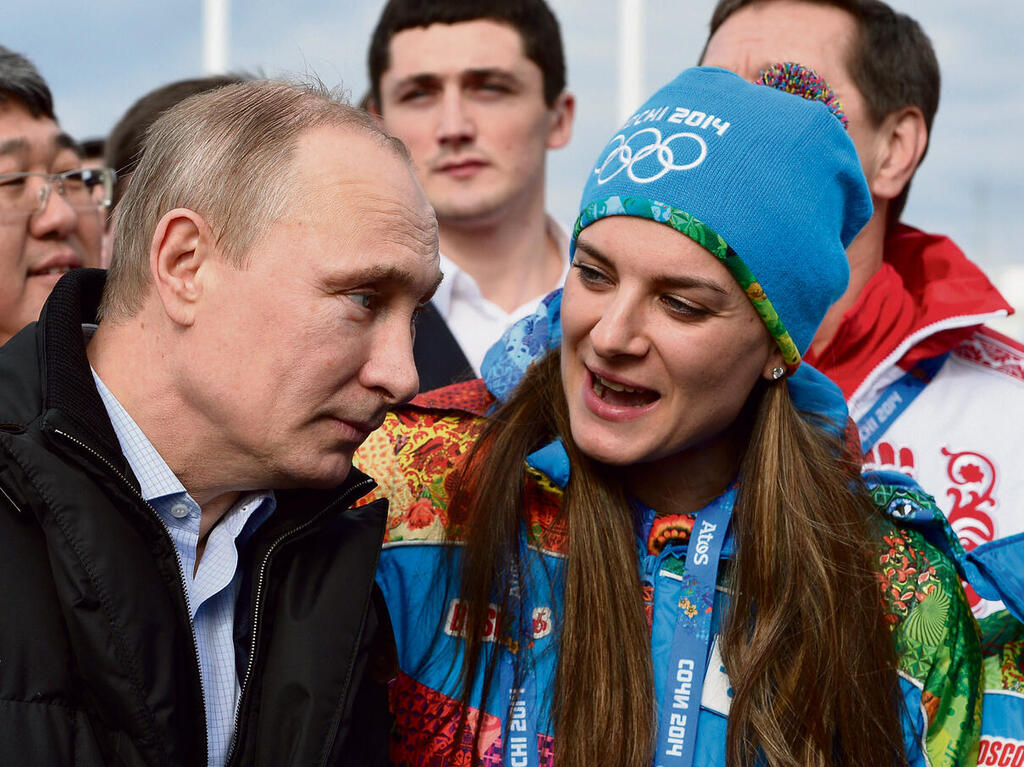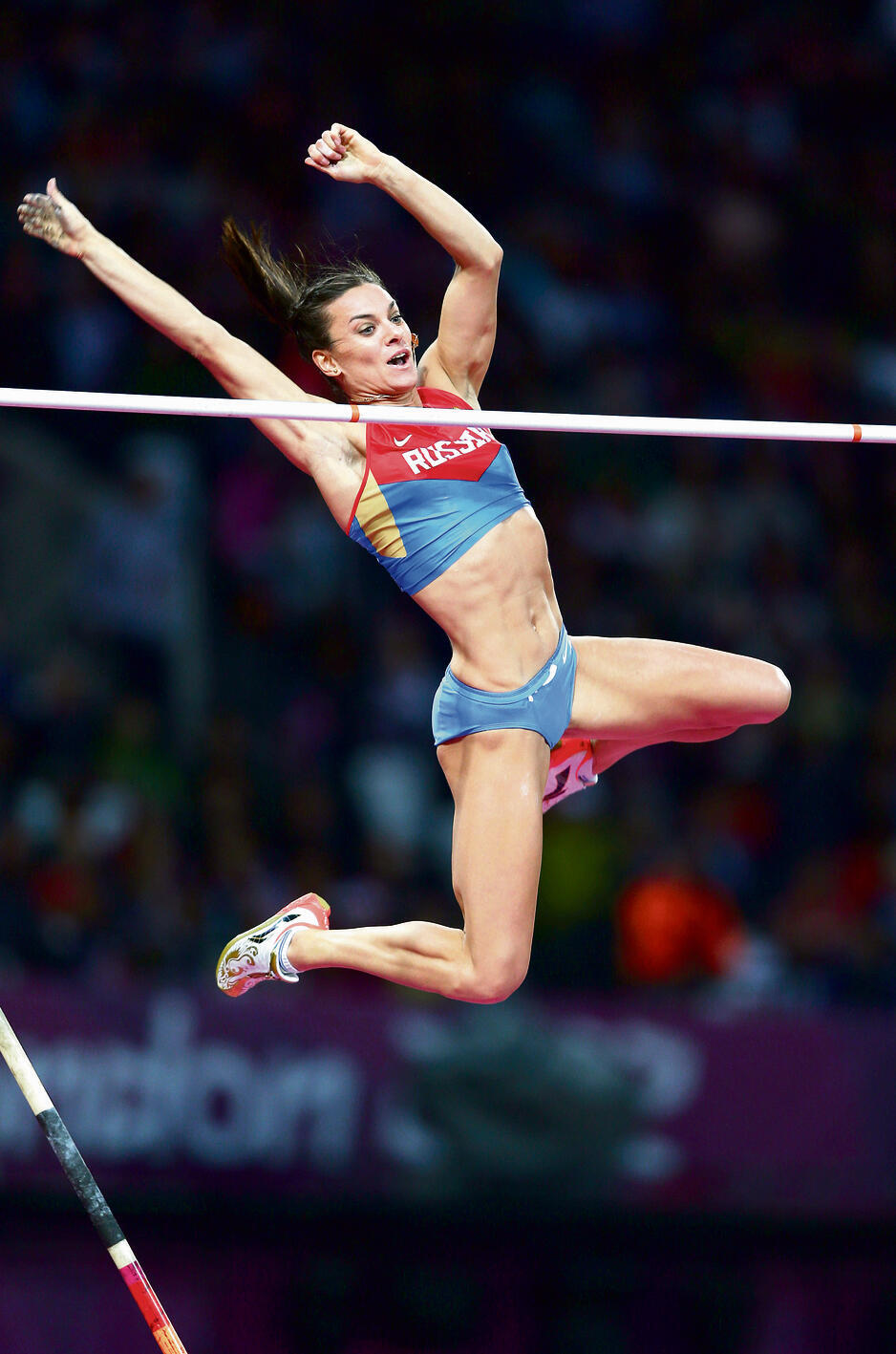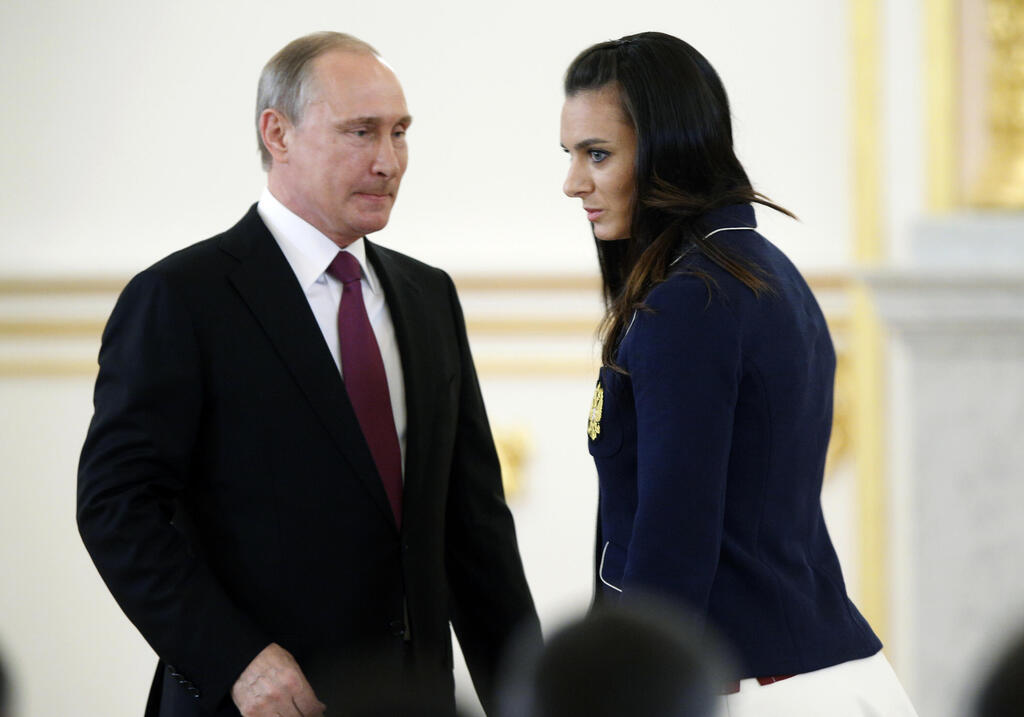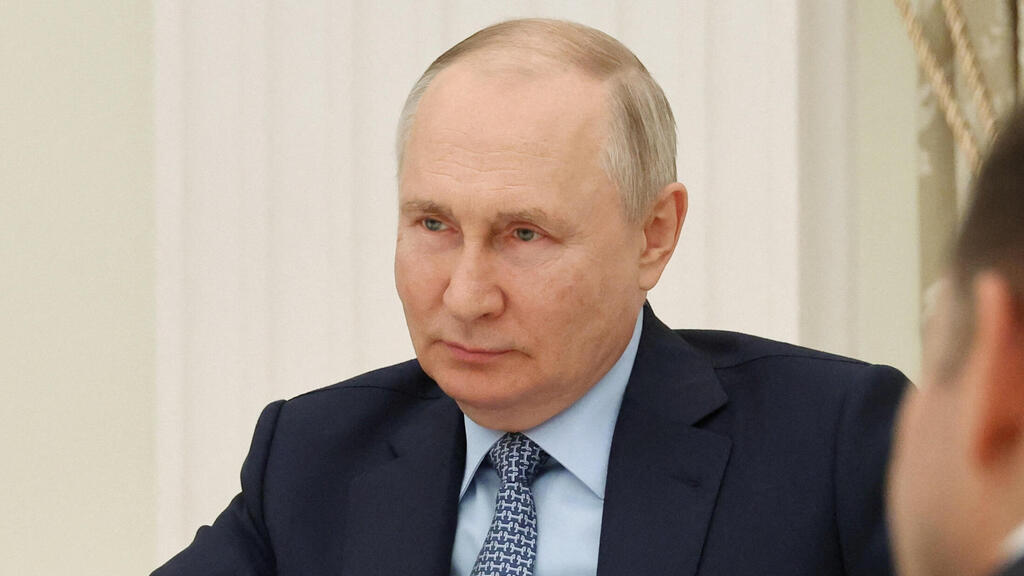Getting your Trinity Audio player ready...
Yelena Isinbayeva, one of Russia's most accomplished athletes and a strong supporter of Russian President Vladimir Putin, appeared in the West after months of silence. born in 1982, Isinbayeva set 28 world records. Her most recent record, set in 2009 with a jump of 5.06 meters, still stands today. She has won two Olympic gold medals and three world championships.
More stories:
Like most prominent Russian athletes, she drew the attention of influencers and politicians and their affection was welcome and eagerly reciprocated: Isinbayeva enjoyed being close to power and authority.
Leading up to the 2012 elections, she took on a prominent role in the campaign headquarters of Vladimir Putin whom she described as one who “doesn’t only talk but takes action,” She was drawn to his promise of rebuilding Russia from the ground up.
In 2014, two years after Putin's election victory, she was appointed as an honorary ambassador for the Winter Games in Sochi. Subsequently, she continued to receive prominent government appointments, and in return, she promoted Putin's agenda, even suggesting he could serve as president without term limits, making her one of the most celebrated and disliked women in the country, depending on one's perspective.
In 2016, after sanctions were imposed on the Russian delegation for the Rio Olympics, she was denied the opportunity to retire with a gold medal. “Now let all these foreign pseudo-clean athletes sigh with relief and win their pseudo-gold medals in our absence,” she said at the time.
When Russia invaded Ukraine, Isinbayeva disappeared from her home in Monaco and was incognito for a year. Just two weeks ago, she resurfaced, this time in Tenerife, Spain.
The Russian government and media cast doubt on the credibility of the recent images circulated in Spanish outlets, which showed Isinbayeva alive in the upscale neighborhood, and was described as a strong supporter of the Ukrainians and an active participant in the embargo against the Russians.
"The Spanish media are providing incorrect information about Yelena Isinbáyeva's arrival in the country. There have been many stories about her. Until I hear it from her lips that she made such a decision, I won't believe it,” said Svetlana Zhurova, Russia’s Deputy of the State.
Isinbayeva emerged from among the ranks of the Russian military and became an officer. The Russian government proudly presented her everywhere and never missed an opportunity to spread her photos.
She held multiple titles: a major in the Russian army, an Olympic champion, a member of Putin's team, an honorary ambassador for the 2014 Sochi Games, and a vocal advocate for anti-LGBT laws. Today, however, the Kremlin is trying every possible way to bury these facts.
While Russia's patriotic elite is reluctant to leave the country, Isinbayeva is clearly in Spain. She has purchased several properties there, joined international peace organizations, and claims to be a cosmopolitan citizen who never served in the military, suggesting her ranks were purely symbolic.
Unlike other Russians who took similar actions, the Kremlin refrains from labeling her a "traitor." Her past achievements led to the Russian anthem playing proudly during major competitions across the world. If she were to be labeled a traitor, it would be a personal and moral blow to Putin and his close circle.
"It doesn't matter where she lives," said Dmitry Peskov, Putin’s press secretary. However, the stadium in Daghestan bearing her name is set to be renamed, and some parliament members have even proposed involving the Prosecutor General in the matter.
On the other hand, no one seems sympathetic toward the former athlete. Alexei Navalny, Putin's most prominent opposer, said in a message from prison that Spain must expel her from the country.
Isinbayeva, it seems, is looking to erase her association with Putin. Just as she used her sporting achievements to reach centers of power in Russia, she's now using sports to distance herself from the country’s president: she announced her intention to rejoin the International Olympic Committee.
Isinbayeva, reportedly wasn't merely a distinguished athlete or a successful campaigner for Putin's elections, but rather a close companion and confidante of the president for a long time.
This proximity was expected to lead to her continuous surveillance by Russia's secret services, but either it didn't happen or failed in the process. On the other hand, her choice to live in Spain, a country working to support Ukraine, can also be a sort of declaration by the athlete about her intentions.
Isinbayeva is also accused of being one of the people responsible for establishing a 2015 institution whose sole purpose was to provide firearms training, medical training, and the use of interrogation techniques. Using her military credentials, she recruited and encouraged children to join the "Young Army" to present their talents and learn to love and appreciate Russia.
Thus, at 41, everyone has become disenchanted with her. The Russian opposition denies her, the Ukrainian government seeks her expulsion from Spain for her role in the war, and Putin's men are losing sleep in order to locate her. Isinbayeva always wanted to translate her success in sports into a stepping stone for power. Unfortunately, she succeeded.





